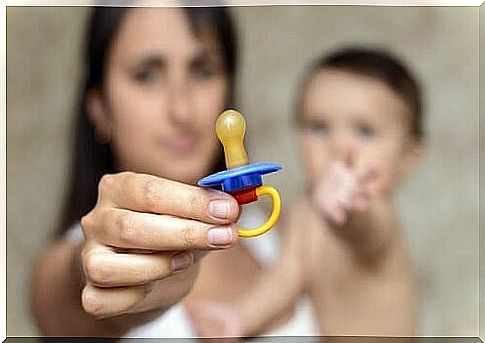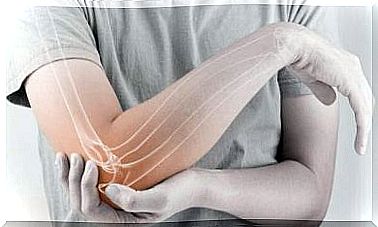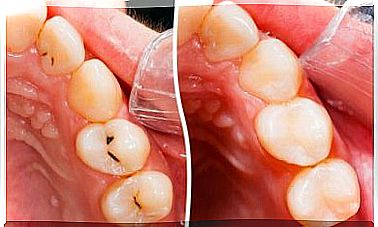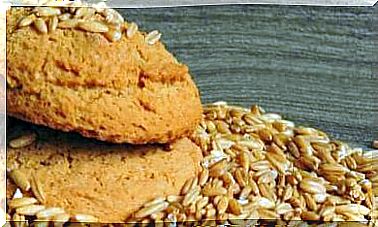4 Tips To Get Your Child To Stop Sucking Your Thumb

Parents are worried when they see their children sucking their thumbs. It is true that sucking your thumb can cause serious health problems, not just problems with your teeth. Therefore, it is understandable that parents are concerned about it.
Have you seen an ultrasound of a fetus already sucking its thumb in the womb? It’s his way of exploring the world around him, and it’s perfectly normal. So before you worry too much, first try to understand why he is doing so.
Thumb or pacifier?
Babies naturally have a sucking reflex. In fact, they need it to survive. That way they get food and it calms them down. A baby who is breastfeeding does not necessarily need to suck his thumb or use a pacifier, as he has a mother who feeds and soothes him.
However, it is normal for a baby to start putting a finger or two fingers in their mouth at 2-6 months of age. It’s one of the baby’s developmental stages, a way to calm yourself down.

Many parents think that giving a pacifier is a better option than letting the baby suck their thumb. It is said that it is easier to take a pacifier from him when its time comes. Thumb when you can not take away! However, both have the same consequences if used after the child reaches the age of two:
- Tooth skew and mouth deformity
- Pronunciation problems
- Latent, underlying mental problems
How do you stop thumb sucking?
Just as it is normal for a baby to put his finger (thumb) in his mouth, it is also normal for him to stop it at the age of two. So before that age, there is no reason to worry.
When your child turns 3 or 4, and still sucks a lot with their thumb, watch him or her and look for the underlying causes. That way, you’ll be able to find more effective ways to get him to stop and protect his teeth.
But since children are not the same and they develop at different rates, it can be said that the moment when action should begin is when the child’s front teeth begin to appear. If you find your teeth starting to grow apart to make room for your thumb, it’s definitely time to act. Here are 4 basic tips to help you.
1. Infer the cause and give the child other options
If your child sucks his thumb to help himself fall asleep, give him other forms of support at bedtime. Cover him up, read an evening tale, give him his favorite plush toy or doll.

If she sucks her thumb while being sad or restless, you may just need to talk to her, hug and comfort her. If your child does it while they’re bored, it’s time to encourage his or her creativity and mislead him or her. Start a game, craft, take a walk… it can be exactly what he really means by sucking his thumb.
2. Explain the sanctions
Sometimes you just jump straight into using different means or see a doctor when you could just start by sitting down and chatting with your child. Give him a simple explanation of why it’s not a good idea to suck your thumb.
You may be surprised at how much children understand what is being said to them and are acting appropriately. Tell the child that his teeth may be ruined, that he is no longer a baby and that now is the time to stop sucking your thumb.
However, don’t make him feel embarrassed in front of other people. By no means shout at him or punish him if you notice him with his thumb in his mouth. He may stop doing it in front of you, but continue it when he is alone. It is much better to use positive reinforcement every time you find that you are dealing with the cause of the problem (fatigue, restlessness, boredom) in a better way.
3. Cover your thumb
You may feel that further action is necessary to prevent your baby from sucking on their thumb. He probably has some kind of induration in the thumb due to sucking it, so cover it with a patch and explain that it treats the induration.

The patch should be protective but not too tight. You don’t want your child to remove it themselves. If he tries to suck his thumb, the texture and taste of the patch will act as a barrier. Some parents even put vinegar or lemon in it to make it even more uncomfortable. Act in the way that works best for you.
If your child has not sucked their thumb after two weeks and you are aware of the underlying reasons, the change in behavior is likely to be completed.
4. Get help from a professional
If none of the above tips work to get your child to stop sucking your thumb, it’s time to seek professional help. For example, orthodontics can provide a device that prevents a child from putting a thumb in their mouth.
However, if the problem seems disproportionate or impossible to control, you should seek the help of a child psychiatrist. It may be a sign of some deeper, more serious problem.









